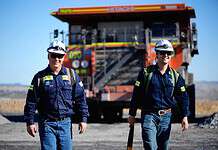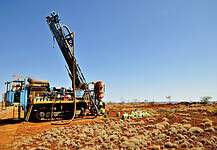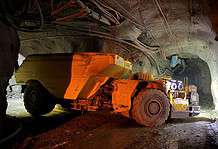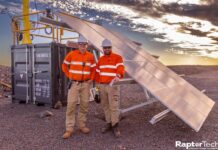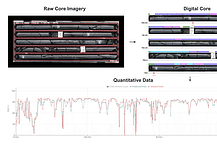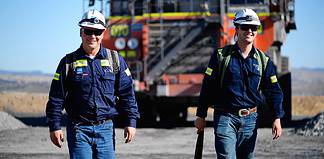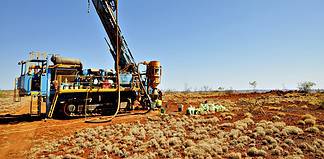Peak crane body vital in driving the future

Since 1980, the Crane Industry Council of Australia (CICA) has been a driving force behind strengthening the crane industry across the country.
Providing opportunities and support in a bid to progress the industry nationally, CICA has always aimed to improve the health, safety and wellbeing of crane industry personnel, push compliance in legislation and regulation, and improve crane usage, experience and efficiency.
The council is not only Australia’s peak body for the crane industry though.
Its board is also involved on a global scale, sitting on the International Crane Stakeholders Assembly where continents are represented and facilitate information sharing and dialogue between stakeholders and industry experts.
CICA Board President Ben Pieyre has been in the role since 2022 and comes with an extensive background that proves he is highly qualified for the position of representing Australia’s crane industry.
From 2005, where he began his career as an entry level dispatcher, to later setting up an Australian crane business in Malaysia (2016), heading one of Canada’s largest crane operators (2018) and now engaged as Boom Logistics’ Chief Operating Officer, Mr Pieyre has been involved with CICA since 2010.
“Our vision is to be the authority for the crane industry in Australia; we want to be at the forefront of the mobile crane industry in terms of dealing and managing with regulators and government departments,” he explains.
“So when there are issues that need to be improved or when new projects are being discussed, we talk about things like road access with authorities; we also deal with legacy matters, we provide guidance as how the industry works and what we would like to see happen, and drive traineeships.”
Traineeships & Safety
Currently, there are two traineeships available – one in WA and SA and one in NSW and Vic.
In 2022, CICA saw success with the WA State Training Board approving a Certificate III in Mobile Crane Operations, after advocating and pushing for the vital qualification.
The option of a Certificate ensures that new entrants have a clear pathway into the crane industry and is attractive as a career option. Mr Pieyre reveals CICA is currently driving the traineeship pathway to be compulsory across the country.
“The current system is like getting a driver’s license, where you can do a week’s course, for example, and get the license, but it doesn’t give you hands-on experience like a traineeship does,” he says.
“It’s simply getting the minimum requirements that the curriculum needs you to have, without the real-life experience and knowledge an individual truly requires in the industry. Improving training and skills is a big issue CICA are working hard towards – put simply, if we lift the standards of our industry, the industry overall is better off.
“That’s the impact we want to have.”
As well as the success seen with the Certificate III in Mobile Crane Operations, CICA developed a two-part training program that assesses an individual’s familiarity with articulated (pick and carry) cranes following a number of investigations in recent years.
Without a specific Heavy Vehicle Licence requirement, seasoned articulated crane operators had never been properly trained or assessed for driving this style of crane on-road, and a recommendation was handed down following a coronial inquiry that a training course be developed to ensure drivers of these cranes have appropriate theoretical and practical knowledge.
CICA was approached, and received a federal grant through a Heavy Vehicle Safety Initiative to develop the program, which is now a standardised course that is a means to raise awareness of the lack of formal training for articulated crane drivers without crippling the industry.
The course is conducted via CrewSafe – CICA’s award winning VOC assessment tool that leads to sustainable improvement in workplace behaviour and performance processes.
And as recently as early April 2023, a new online Crane Industry Guide was made available for Victorian mobile crane operators as a single, valuable reference point for industry that includes information on crane importation, registration, legislation, regulation and road network access.
It was developed via collaboration between the Andrews Labor Government, CICA, VicRoads, the National Heavy Vehicle Regulator and Freight Victoria.
This is a major step move forward in CICA continuing its mission to deliver high standards of resources in safety and training.
Supporting Mine Industry
With cranes an essential part of production and maintenance tasks in mining and mineral processing, the industry is well supported by mine operators and contractors. “Cranes are being used on mine sites every single day around Australia, with some having permanent cranes operated by either mine owners or a service provider,” Mr Pieyre explains. “They are there for construction as well as maintenance phases and maintaining productivity, supporting not only the mining industry but rail systems and ports.”
How Does The Future Look
With a current increase in production within the resources sector, there is still a fantastic potential for growth in the crane industry in particular with newer technologies coming on board.
Mr Pieyre reveals although cranes are a long way off from a world where autonomous cranes are in the picture, the next decade broods excitement amongst industry experts. “I can’t see cranes moving into the direction of autonomous operation just yet, only because we’re exposed to a great number of elements,” he says. “For us, we’re faced with high winds, which is our worst enemy. “AI may accelerate the time frame to when we can see this happen, but not for a very long time; humans will remain a key operational part of crane control for many years to come. “However, on the topic of technology, we’ve just been to two international shows in the last six months – one in Germany and one in the US, and we’re seeing a lot of forward movement in things like carbon emission-free cranes and battery operated cranes (most conceptual at the moment), so the technology is advancing fast and doing well. “We’re seeing battery operated models coming in and being tested; it’s incredible improvement in that respect. The crane industry is very fast paced, we’re forever moving because everything is being built higher and faster in all industries – we have to move with those industries.”
Despite the positive forecast for the industry, there is a labour shortage, but Mr Pieyre explains now with traineeships set up in four states and movement to get the programs into all states and territories, he is hopeful there will be change sooner rather than later. “Crane operating is not recognised as a trade, so individuals have to front the fees themselves – that’s why it’s so important to get the traineeships in place,” he says.
“Attracting people is slightly difficult these days because there are a lot of choices for career opportunities but we are working strongly with schools and having a heavy presence at career expos and open days; we are really trying to engage people for seeing what a career in the crane industry is like a fast paced, highly exciting and impressive profession with an abundance of opportunity.
CICA Membership Growth
Membership with CICA has grown year on year, with just over 700 members currently – both individuals, companies, suppliers and contractors, as well as mining companies.
“For a so-called ‘small’ industry, this is a fantastic achievement,” Mr Pieyre says. “The research, representation and resources CICA provides, equips our members with solutions and information they need to safely and effectively run their businesses or operations.”
For more information on CICA visit cica.com.au






